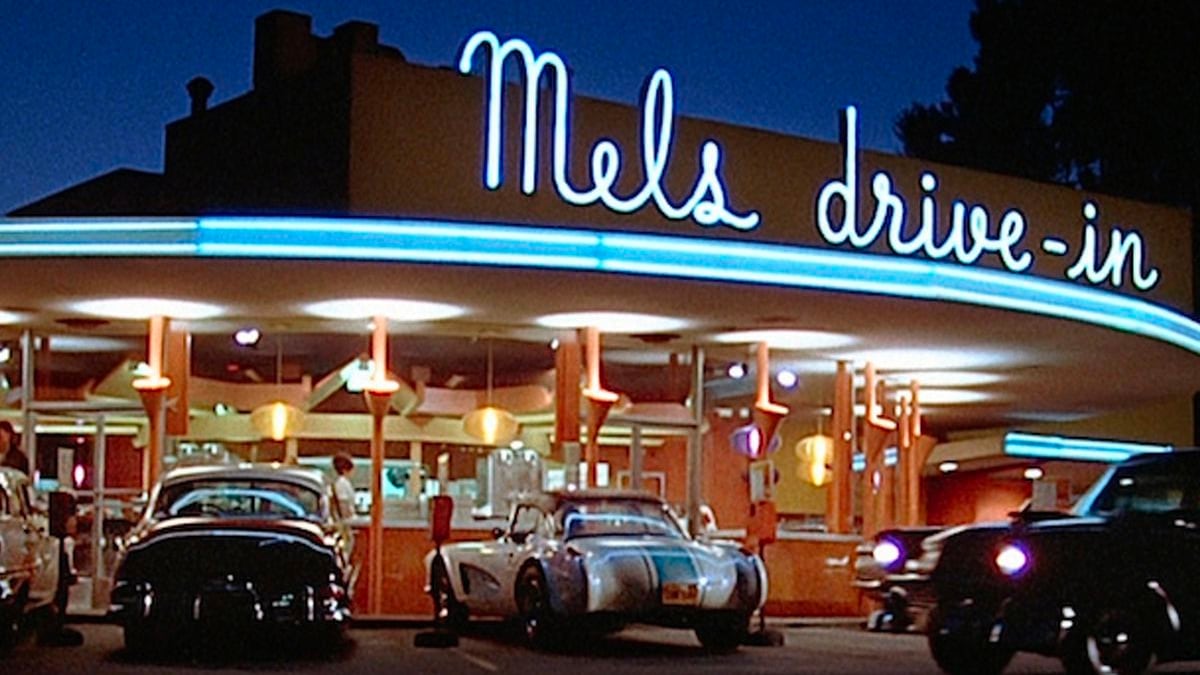For years, film programmer Elliot Lavine has been introducing screenings at Cinema 21. This summer, he’s back for “Seven From the Seventies,” a series of films from what many consider to be the finest decade for cinema (although 1999, the year of The Matrix, American Beauty, Fight Club and Three Kings, still seems to be the consensus pick for best individual year for movies).
Seven From the Seventies, which will take place on Saturdays at 11 am throughout July and August, runs the gamut, from film noir to science fiction to teenage coming-of-age sagas (and features directors as different as George Lucas and Hal Ashby). Below is a guide to help you sort through it all, starting with the groundbreaking sci-fi film released in 1977 that didn’t have Star Wars in the title.
Close Encounters of the Third Kind (1977)
Steven Spielberg brought eerie wonderment to this saga of a wayward father (Richard Dreyfuss) who believes he’s on the verge of making first contact with an alien species. Like E.T. The Extra-Terrestrial, the film cleverly contrasts bland suburbia with an inviting void, but the ending remains a bit of a head-scratcher; it’s like Interstellar, but if Christopher Nolan didn’t give a fuck about Matthew McConaughey’s kids (and didn’t want you to either). 11 am Saturday, July 16.
Paper Moon (1973)
One of the all-time great road movies. The late Peter Bogdanovich (The Last Picture Show, What’s Up Doc?) directs Ryan O’Neal playing Depression-era con man Moses Pray, who finds an unlikely ally in 9-year-old Addie Loggins (Oscar winner Tatum O’Neal, Ryan’s real-life daughter). The screenplay is by the late Alvin Sargent, who went on to script Robert Redford’s Ordinary People and Sam Raimi’s Spider-Man 2 (also known as the best. Superhero. Movie. Ever!). 11 am Saturday, July 23.
Harold & Maude (1972)
In his heyday, hirsute auteur Hal Ashby unleashed numerous iconic films, including Coming Home, The Last Detail and Shampoo. But Harold & Maude, which stars Bud Cort as a young man who begins a friendship (and later a romantic relationship) with 79-year-old Maude (Ruth Gordon), remains one of Ashby’s most beloved works. 11 am Saturday, July 30.
Badlands (1973)
Does Terrence Malick make movies about God? Or is he God? Is there even a difference? Whatever the answer, Badlands remains one of the impressive directorial debuts in film history. Loosely based on an actual killing spree, the film stars Martin Sheen as the murderous Kit, who finds an eerily detached accomplice in Holly (Sissy Spacek). Like all of Malick’s films, Badlands has the quality of an elusive dream, but it’s actually somewhat straightforward compared to his recent films (especially To the Wonder, Knight of Cups and Song to Song, his astounding and underrated trilogy of contemporary romances). 11 am Saturday, Aug. 6.
McCabe & Mrs. Miller (1972)
Considered one of the greatest Westerns of all time (although director Robert Altman preferred to call it an “anti-Western”), McCabe & Mrs. Miller stars Warren Beatty as John McCabe, a gambler who opens a brothel in a town called Presbyterian Church(!). Julie Christie plays his Cockney business partner Constance Miller; the cast also includes the late René Auberjonois, who would go on to play the soulful shapeshifter Odo on Star Trek: Deep Space Nine. 11 am Saturday, Aug. 13.
Chinatown (1974)
Roman Polanski may be a rapist, but it’s still socially acceptable to gush over his films. Unlike Woody Allen, he’s had a limited onscreen presence; that makes it all too easy to watch his work without thinking about him. A classic film noir like Chinatown (which stars Jack Nicholson and Faye Dunaway) demands to be seen on the big screen, but there’s still a reckoning to be had over Polanski’s place in film history, even if there’s no denying his artistic gifts. 11 am Saturday, Aug. 20.
American Graffiti (1973)
In George Lucas’ wondrous second feature, nothing and everything happens. The time is 1962 and the setting is cloistered California town, where high school buddies Curt (Richard Dreyfuss) and Steve (Ron Howard) are each plunged into an existential crisis as they prepare to depart for college. Few films are as alive as this one; it pulses with wit and yearning, all of it squeezed into a single frenzied night. The closing moments (which gesture toward the tragedies that await the characters and America itself in the coming years) remain hauntingly poignant. 11 am Saturday, Aug. 27.
